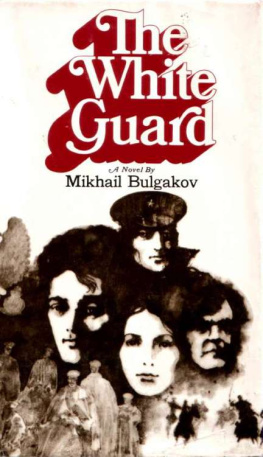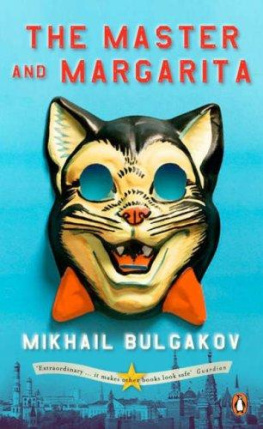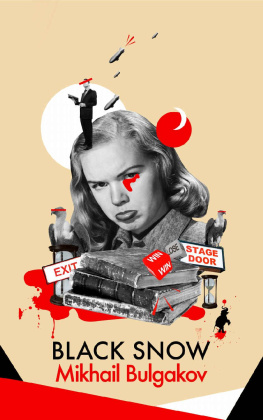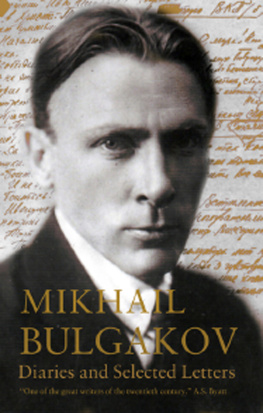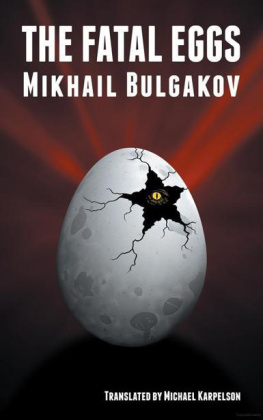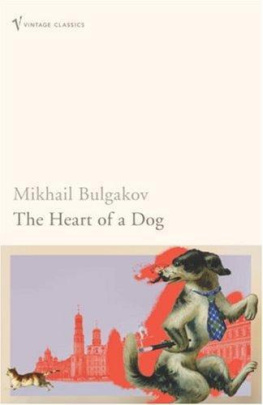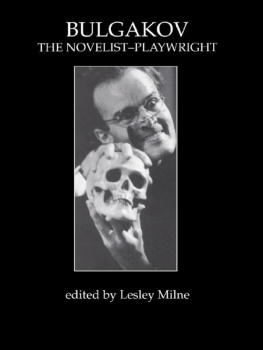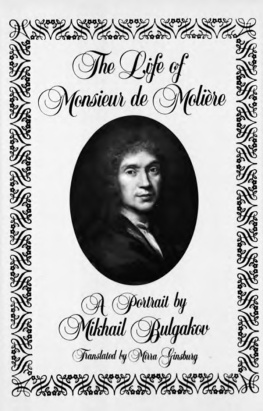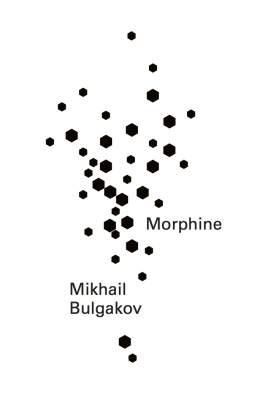Mikhail Bulgakov - Diaboliad
Here you can read online Mikhail Bulgakov - Diaboliad full text of the book (entire story) in english for free. Download pdf and epub, get meaning, cover and reviews about this ebook. genre: Detective and thriller. Description of the work, (preface) as well as reviews are available. Best literature library LitArk.com created for fans of good reading and offers a wide selection of genres:
Romance novel
Science fiction
Adventure
Detective
Science
History
Home and family
Prose
Art
Politics
Computer
Non-fiction
Religion
Business
Children
Humor
Choose a favorite category and find really read worthwhile books. Enjoy immersion in the world of imagination, feel the emotions of the characters or learn something new for yourself, make an fascinating discovery.

- Book:Diaboliad
- Author:
- Genre:
- Rating:4 / 5
- Favourites:Add to favourites
- Your mark:
- 80
- 1
- 2
- 3
- 4
- 5
Diaboliad: summary, description and annotation
We offer to read an annotation, description, summary or preface (depends on what the author of the book "Diaboliad" wrote himself). If you haven't found the necessary information about the book — write in the comments, we will try to find it.
Diaboliad — read online for free the complete book (whole text) full work
Below is the text of the book, divided by pages. System saving the place of the last page read, allows you to conveniently read the book "Diaboliad" online for free, without having to search again every time where you left off. Put a bookmark, and you can go to the page where you finished reading at any time.
Font size:
Interval:
Bookmark:
Annotation
Diaboliad by Mikhail Bulgakov
Translated by K.M. Cook-Horujy
At a time when everyone else was hopping from one job to the next, Comrade Korotkov was firmly ensconced at MACBAMM (the Main Central Base for Matchstick Materials) in the permanent post of Chief Clerk, which he had now held for no less than eleven months.
Happy in his MACBAMM haven, the quiet and sensitive fair-haired Korotkov had banished from his mind completely the idea that fortunes can change, replacing it by the conviction that he, Korotkov, would go on working at the Base as long as there was life on earth. But, alas, this was not to be
On 20 September, 1921 the MACBAMM cashier donned his revolting fur cap with the big ear flaps, put a striped cheque in his briefcase and drove off. That was at 11.00 a. m.
At 4.30 p. m. the cashier returned, drenched to the skin. He came in, shook the water off his cap, placed the cap on the desk and the briefcase on top of it, and said:
Don't all rush, ladies and gents.
Then he rummaged about in the desk, left the room and came back a quarter of an hour later carrying a large dead chicken with its neck wrung. Placing the chicken on the briefcase and his right hand on the chicken, he announced:
There's no cash.
Tomorrow? the women shouted in chorus.
No, the cashier shook his head. Not tomorrow either, or the day after. Keep calm, ladies and gents, or you'll knock the desk over, comrades.
What? yelled everyone, the naive Korotkov included.
Citizens! the cashier cried tearfully, elbowing Korotkov out of the way. I beg you!
But there must be! everybody shouted, that comic Korotkov loudest of all.
Alright, look at this, the cashier muttered hoarsely, pulling the cheque out of his pocket and showing it to Korotkov.
Above the spot where the cashier dug his grimy nail in were some words scrawled in red ink.
Pay cash. Senat, p. p. Comrade Subbotnikov.
Further down were some more words in purple ink.
No cash left. Smirnov, p. p. Comrade Ivanov.
What? shouted Korotkov on his own, while the others, puffing and panting, descended upon the cashier.
Oh, my goodness! the latter howled wretchedly. Why blame me? Oh, my godfathers!
Stuffing the cheque hurriedly into his briefcase, he pulled on his cap, thrust the briefcase under his arm, brandished the chicken, shouting, Stand aside! and, breaching his way through the human wall, disappeared through the door.
The squealing white-faced registrar tottered after him on her high heels. The left heel snapped off by the door, and the registrar staggered, lifted her foot and took the shoe off.
And there she stood in the room, one foot shoeless, with the rest of them, Korotkov included.
Three days after the event described, the door of the office where Comrade Korotkov was working opened slightly, and a woman's head said spitefully:
Go and get your pay, Comrade Korotkov.
What? Korotkov exclaimed delightedly and, whistling the overture to Carmen, trotted along to a room with a notice saying Cashier. By the cashier's desk he stopped open-mouthed. Two thick piles of yellow packets rose up to the ceiling. To avoid answering questions, the agitated and perspiring cashier had pinned up the cheque, which now bore yet another scrawl, this time in green ink.
Pay in production produce.
Preobrazhensky, p. p. Comrade Bogoyavlensky.
I agree Kshesinsky.
Korotkov left the cashier's office with a broad, stupid grin on his face. He was carrying four large yellow packets and five small green ones in his hands, plus thirteen blue boxes of matches in his pockets. Back in his room, listening to the hubbub of amazed voices in the General Office, he wrapped up the matches in two large sheets from that morning's newspaper and slipped out without a word to anyone. By the main entrance he was nearly run over by a car in which someone had just arrived, exactly who Korotkov could not see.
Back home he unwrapped the matches on the table and stood back to admire them. The stupid grin did not leave his face. After that Korotkov ruffled up his hair and said to himself:
Come on, it's no good moping about all day. We must try to sell them.
He knocked on the door of his neighbour, Alexandra Fyodorovna, who worked at the Provincial Wine Depot.
Come in, said a hollow voice.
Korotkov went in and stared in amazement. Alexandra Fyodorovna, also back early from work, was squatting on the floor in her coat and hat. In front of her stretched a long line of bottles containing a deep red liquid, stoppered with little balls of newspaper. Alexandra Fyodorovna's face was smudged with tears.
Forty-six, she said, turning to Korotkov.
Good afternoon, Alexandra Fyodorovna. Is that ink? asked the astonished Korotkov.
Communion wine, his neighbour replied, with a sob.
You've got some too? Korotkov gasped.
Have you been given communion wine as well then? Alexandra Fyodorovna asked in amazement.
No, we got matches, Korotkov replied weakly, twisting a button on his jacket.
But they don't light! exclaimed Alexandra Fyodorovna, getting up and brushing her skirt.
What do you mean, they don't light? Korotkov exclaimed in alarm and hurried off to his room. There, without wasting a moment, he snatched up a box, tore it open and struck a match. It hissed and flared up with a green flame, broke in two and went out. Choking from the acrid smell of sulphur, Korotkov coughed painfully and struck a second one. This one exploded, emitting two fiery sparks. The first spark landed on the window-pane, and the second in Comrade Korotkov's left eye.
Ouch! cried Korotkov, dropping the box.
For a few moments he clattered about like a spirited stallion clasping his hand to his eye. Then he looked with trepidation into his shaving mirror, convinced that he had lost the eye. But it was still there. A bit red, though, and tearful.
Oh, my goodness! Korotkov said agitatedly. He took an American first-aid packet out of the chest of drawers, opened it and bandaged the left half of his head, until he looked like someone wounded in battle.
Korotkov did not turn the light out all night and lay in bed striking matches. He got through three boxes, out of which he managed to light sixty-three matches.
The silly woman's wrong, muttered Korotkov. They're fine matches.
By morning the room reeked suffocatingly of sulphur. At daybreak Korotkov fell asleep and had a weird, frightening dream. In front of him in a green meadow was an enormous live billiard ball on legs. It was so loathsome that Korotkov cried out and woke up. For a few seconds Korotkov thought he saw the ball there in the dim misty light, by his bed, smelling strongly of sulphur. But then it vanished. Korotkov turned over and fell fast asleep.
Next morning Korotkov moved aside the bandage and saw that his eye had almost recovered. Nevertheless, an excessively cautious Korotkov decided not to take the bandage off for the time being.
Arriving at work extremely late, a crafty Korotkov went straight to his office, so as not to give rise to any false speculation among the lower ranks, and found on his desk a memo from the head of the Supplies Sub-Section to the head of the Base asking whether the typists were to receive any special clothing. After reading the memo with his right eye, Korotkov picked it up and set off down the corridor to the office of the Base head, Comrade Chekushin.
Right outside the door of the office Korotkov collided with a most peculiar-looking stranger.
The stranger was so short that he only came up to the tall Korotkov's waist. This lack of height was compensated for by the extraordinary breadth of the stranger's shoulders. The squarish torso sat on bandy legs, of which the left one limped. But the most remarkable thing was the head. It was like a huge model of an egg placed horizontally on the neck with the pointed end facing you. It was also bald, like an egg, and so shiny that electric light bulbs shone all the time on the crown. The small face was shaven blue, and the green eyes, small as pin-heads, sat in deep sockets. The stranger's body was enveloped in an unbuttoned army jacket made from a grey blanket, with an embroidered Ukrainian shirt peeping out. The legs were clad in trousers of the same material and the feet in shortish boots with slits like those worn by hussars in the reign of Alexander I.
Next pageFont size:
Interval:
Bookmark:
Similar books «Diaboliad»
Look at similar books to Diaboliad. We have selected literature similar in name and meaning in the hope of providing readers with more options to find new, interesting, not yet read works.
Discussion, reviews of the book Diaboliad and just readers' own opinions. Leave your comments, write what you think about the work, its meaning or the main characters. Specify what exactly you liked and what you didn't like, and why you think so.

